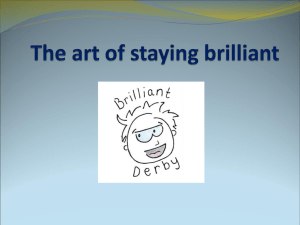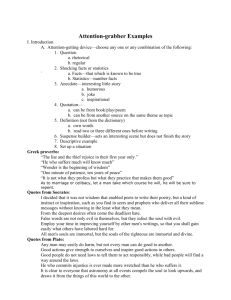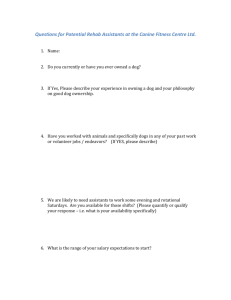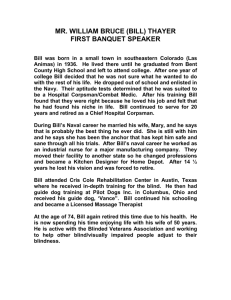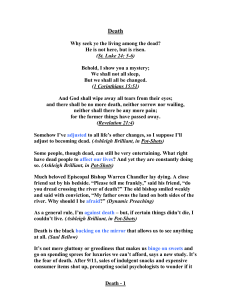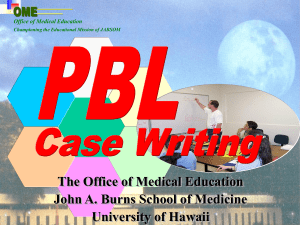Duality
advertisement
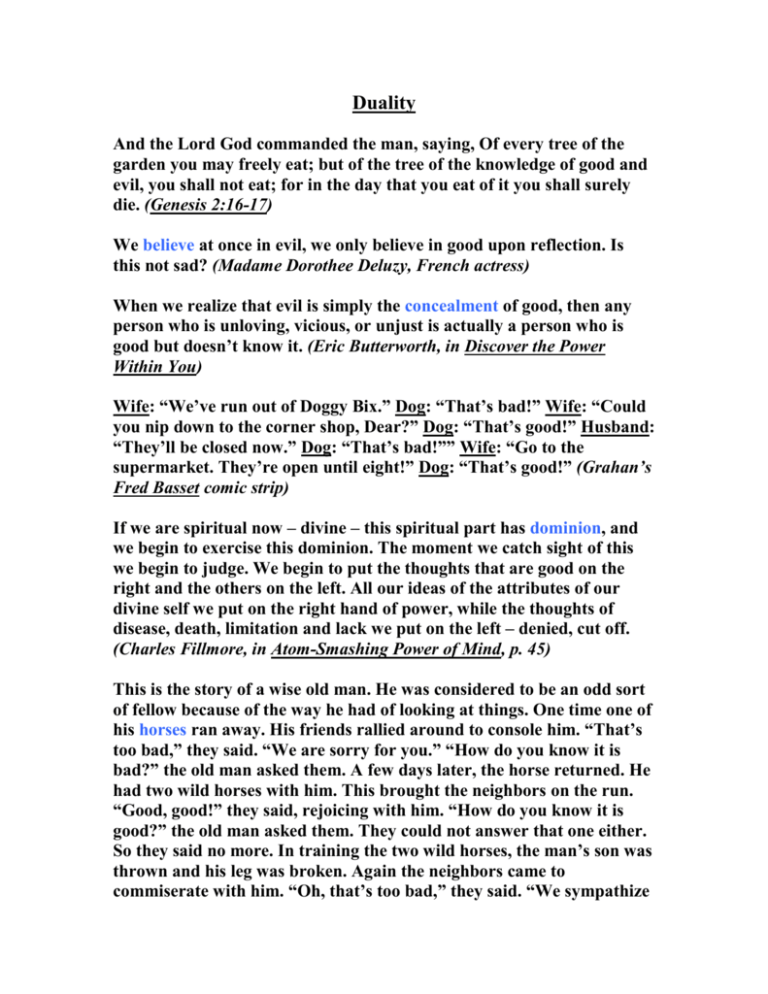
Duality And the Lord God commanded the man, saying, Of every tree of the garden you may freely eat; but of the tree of the knowledge of good and evil, you shall not eat; for in the day that you eat of it you shall surely die. (Genesis 2:16-17) We believe at once in evil, we only believe in good upon reflection. Is this not sad? (Madame Dorothee Deluzy, French actress) When we realize that evil is simply the concealment of good, then any person who is unloving, vicious, or unjust is actually a person who is good but doesn’t know it. (Eric Butterworth, in Discover the Power Within You) Wife: “We’ve run out of Doggy Bix.” Dog: “That’s bad!” Wife: “Could you nip down to the corner shop, Dear?” Dog: “That’s good!” Husband: “They’ll be closed now.” Dog: “That’s bad!”” Wife: “Go to the supermarket. They’re open until eight!” Dog: “That’s good!” (Grahan’s Fred Basset comic strip) If we are spiritual now – divine – this spiritual part has dominion, and we begin to exercise this dominion. The moment we catch sight of this we begin to judge. We begin to put the thoughts that are good on the right and the others on the left. All our ideas of the attributes of our divine self we put on the right hand of power, while the thoughts of disease, death, limitation and lack we put on the left – denied, cut off. (Charles Fillmore, in Atom-Smashing Power of Mind, p. 45) This is the story of a wise old man. He was considered to be an odd sort of fellow because of the way he had of looking at things. One time one of his horses ran away. His friends rallied around to console him. “That’s too bad,” they said. “We are sorry for you.” “How do you know it is bad?” the old man asked them. A few days later, the horse returned. He had two wild horses with him. This brought the neighbors on the run. “Good, good!” they said, rejoicing with him. “How do you know it is good?” the old man asked them. They could not answer that one either. So they said no more. In training the two wild horses, the man’s son was thrown and his leg was broken. Again the neighbors came to commiserate with him. “Oh, that’s too bad,” they said. “We sympathize with you in your misfortune.” “How do you know that this is bad?” the old man said again. The very next day a war lord and his army came through the land conscripting all able-bodied young men to fight for them. But not the son of the old man. He was not able-bodied. MORAL: There is neither good, nor bad, but thinking makes it so. (Jack E. Addington) Why is what’s bad so often so interesting than what’s good? (Ashleigh Brilliant, in Pot-Shots) I want all the bad parts of you out of my life – the good parts can stay. (Ashleigh Brilliant, in Pot-Shots) Where there are no people, nothing is good or bad. (Ashleigh Brilliant, in Pot-Shots) I believe that there is one story in the world, and only one, that has frightened and inspired us, so that we live in a Pearl White serial of continuing thought and wonder. Humans are caught – in their lives, in their thoughts, in their hungers and ambitions, in their avarice and cruelty, and in their kindness and generosity too – in a net of good and evil. I think this is the only story we have and that it occurs on all levels of feeling and intelligence. Virtue and vice were warp and woof of our first consciousness, and they will be the fabric of our last, and this despite changes we may impose on field and river and mountain, on economy and manners. There is no other story. A man, after he has brushed off the dust and chips of his life, will have left only the hard, clean questions: Was it good or was it evil? Have I done well – or ill? (John Steinbeck, in East of Eden) *************************************************************
